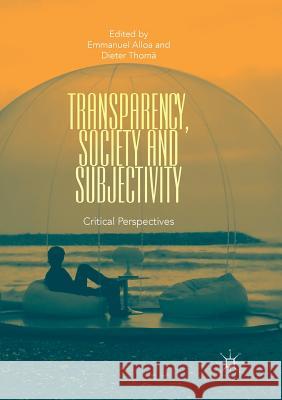Transparency, Society and Subjectivity: Critical Perspectives » książka
topmenu
Transparency, Society and Subjectivity: Critical Perspectives
ISBN-13: 9783030083854 / Angielski / Miękka / 2019 / 408 str.
Kategorie BISAC:
Wydawca:
Palgrave MacMillan
Język:
Angielski
ISBN-13:
9783030083854
Rok wydania:
2019
Wydanie:
Softcover Repri
Ilość stron:
408
Waga:
0.50 kg
Wymiary:
21.01 x 14.81 x 2.18
Oprawa:
Miękka
Wolumenów:
01
Dodatkowe informacje:
Wydanie ilustrowane











